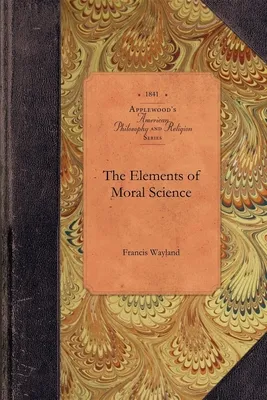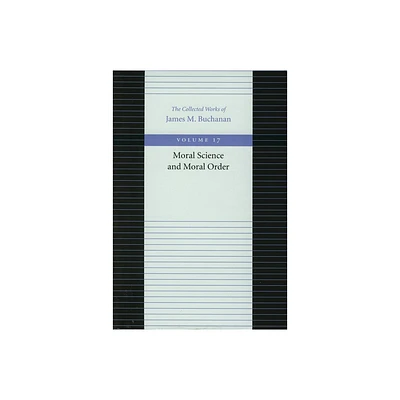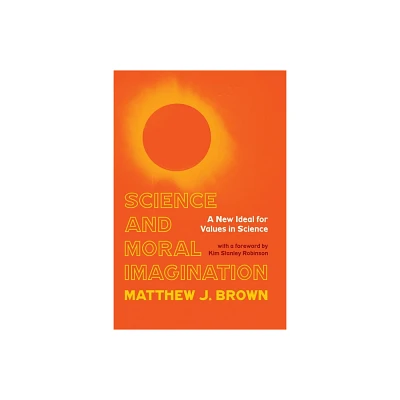Home
Studies in Moral Science
Loading Inventory...
Barnes and Noble
Studies in Moral Science
Current price: $12.99


Barnes and Noble
Studies in Moral Science
Current price: $12.99
Loading Inventory...
Size: OS
*Product Information may vary - to confirm product availability, pricing, and additional information please contact Barnes and Noble
From the Introduction.
Moral Science is the science of duty. The first requisite of any science or of any department of a science is the existence of some well denned body of facts--a group of objects or a succession of events which it is proposed to observe, to classify, or to explain. Any one of these processes of observation, classification, or explanation is scientific; and the merit of any treatment of a given subject will be measured by the accuracy of the observation, the logical character of the classification, and the rationality of the explanation. This first requisite of a science we have; for there is a class of human activities to which the name Duty has been given. This is the field of Moral Science. Every fact relating to the things which men anywhere call duty has a place for treatment in any comprehensive discussion of our subject.
It has sometimes been questioned whether a Moral Science is possible. It is said that there is so little agreement among men as to what duty is: that the same conduct is regarded in one community as a duty and in another as a crime; that even the same person, at different periods in life, will hold as duties, actions most diverse. It is argued that in this confusion, order and system and hence science is impossible. Of this objection several things are to be noted:
1. It argues the need of a Moral Science, not the impossibility of it. That the masses of men have widely diverse and often crude and inconsistent ideas of ethical subjects no more proves the impossibility of a Moral Science than the crude notions of the ancients respecting a multitude of physical objects would have proven the impossibility of the modern sciences of Geography, Physics and Chemistry.
2. The objection itself hints at its answer: The reality of duty may be found to lie, not in the substance of being, not in the fact of given actions as such, but in the relations of beings and actions. Some other sciences are as open to objection here as that with which we are at present concerned. Ask men in different climes and ages, of different races and civilizations for their examples of the beautiful, and you will have diverse and inconsistent answers. Yet who will deny the existence of the Beautiful, or that the science of Aesthetics is in some measure possible?
3. The objection concedes one of the principal facts with which our science proposes to deal. Notwithstanding the diverse opinions of men as to the concrete actions to which the name duty should be attached, they do not differ as to the existence of this fact--that some relation exists between themselves and their fellows, involving discrimination as to proprieties of conduct. In any emergency someone action is the right one, and its opposite is wrong. Men do not differ as to there being a right and a wrong action. They differ as to what that right and wrong action may be. Now these diverse opinions are facts to be observed, and this persistence under it all of the universal conviction of the existence of duty is a fact to be accounted for. This leads us to remark:
4. If all these beliefs of men are incorrect -- if duty is a misnomer and right and wrong are fictions, it would still be the function of some science to show that fact and to account for these delusions.
Moral Science is the science of duty. The first requisite of any science or of any department of a science is the existence of some well denned body of facts--a group of objects or a succession of events which it is proposed to observe, to classify, or to explain. Any one of these processes of observation, classification, or explanation is scientific; and the merit of any treatment of a given subject will be measured by the accuracy of the observation, the logical character of the classification, and the rationality of the explanation. This first requisite of a science we have; for there is a class of human activities to which the name Duty has been given. This is the field of Moral Science. Every fact relating to the things which men anywhere call duty has a place for treatment in any comprehensive discussion of our subject.
It has sometimes been questioned whether a Moral Science is possible. It is said that there is so little agreement among men as to what duty is: that the same conduct is regarded in one community as a duty and in another as a crime; that even the same person, at different periods in life, will hold as duties, actions most diverse. It is argued that in this confusion, order and system and hence science is impossible. Of this objection several things are to be noted:
1. It argues the need of a Moral Science, not the impossibility of it. That the masses of men have widely diverse and often crude and inconsistent ideas of ethical subjects no more proves the impossibility of a Moral Science than the crude notions of the ancients respecting a multitude of physical objects would have proven the impossibility of the modern sciences of Geography, Physics and Chemistry.
2. The objection itself hints at its answer: The reality of duty may be found to lie, not in the substance of being, not in the fact of given actions as such, but in the relations of beings and actions. Some other sciences are as open to objection here as that with which we are at present concerned. Ask men in different climes and ages, of different races and civilizations for their examples of the beautiful, and you will have diverse and inconsistent answers. Yet who will deny the existence of the Beautiful, or that the science of Aesthetics is in some measure possible?
3. The objection concedes one of the principal facts with which our science proposes to deal. Notwithstanding the diverse opinions of men as to the concrete actions to which the name duty should be attached, they do not differ as to the existence of this fact--that some relation exists between themselves and their fellows, involving discrimination as to proprieties of conduct. In any emergency someone action is the right one, and its opposite is wrong. Men do not differ as to there being a right and a wrong action. They differ as to what that right and wrong action may be. Now these diverse opinions are facts to be observed, and this persistence under it all of the universal conviction of the existence of duty is a fact to be accounted for. This leads us to remark:
4. If all these beliefs of men are incorrect -- if duty is a misnomer and right and wrong are fictions, it would still be the function of some science to show that fact and to account for these delusions.


















